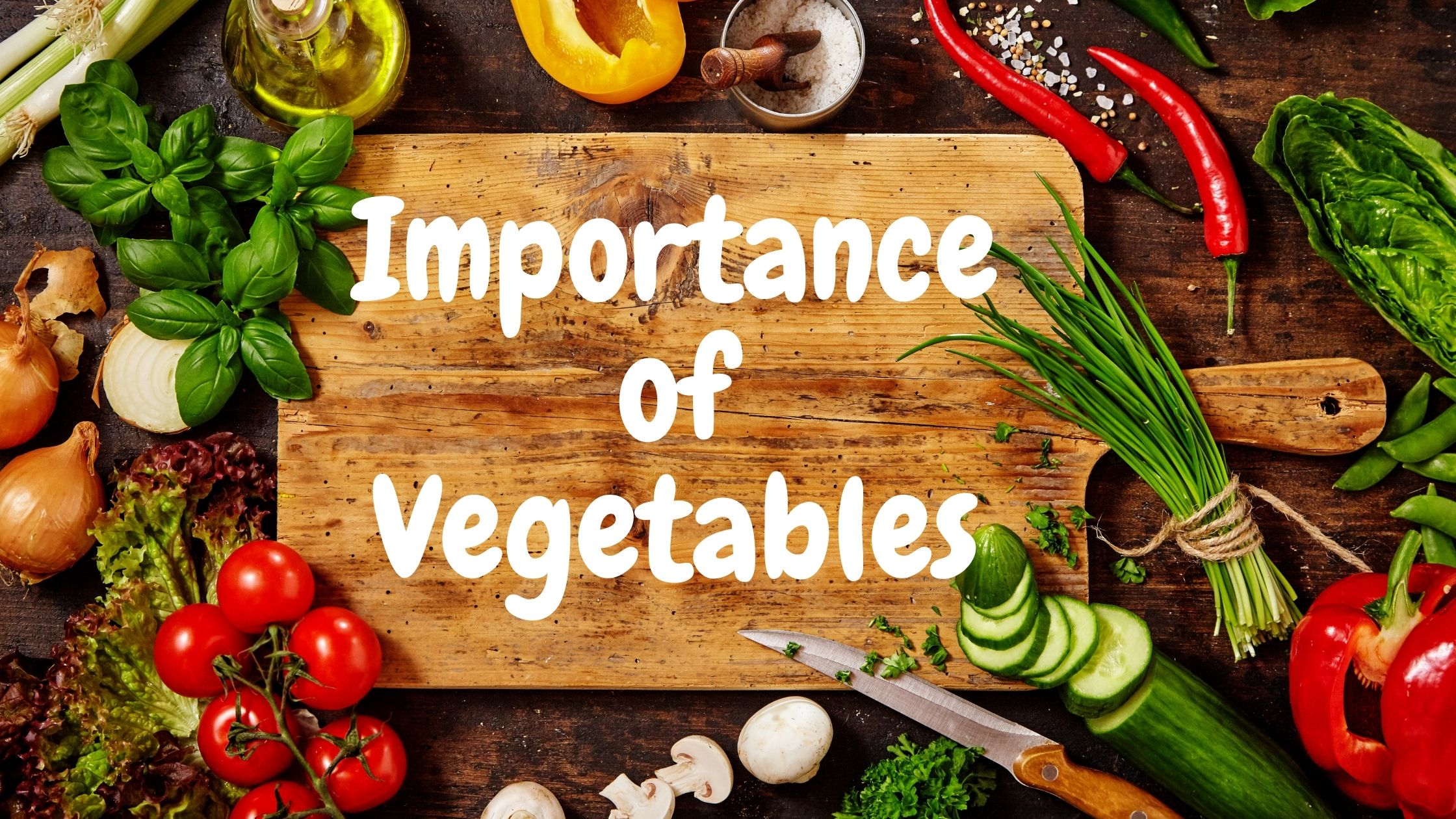Importance of Vegetables
Vegetables come in great colours and flavours, but in what inside lies their real beauty.
The vegetables constitute important sources of several nutrients, such as potassium, fiber, folate, vitamin A and vitamin C.
Naturally, the majority of vegetables have little calories and fat…
Some vegetables have higher carbohydrate levels and are often referred to as starchy vegetables. Usually, these are roots and tubers like pipes and yams. The energy of the starchy vegetables is increased due to their content of carbohydrates.
Additional plants are not classified as starchy. Non-starchy vegetables tend to have a higher water content, and are lower in energy but often richer in vitamins and minerals.
Help your lunch/dinner with half vegetables and select a variety of coloured vegetables. Approximately a quarter of the plate should be powerful foods.
Vegetables are packed with essential vitamins, minerals, and antioxidants that give your body a great deal of good health from a range of phytonutrients.
Phytonutrients
These are plant compounds that occur naturally. In vegetables, usually in small amounts, there are thousands of such different phytonutrients. Plants manufacture them as pigments for photosynthesis (energy production) and for their own protection against insects or bacteria. The bright colour of fruit and vegetables is frequently the responsibility, and research shows that these compounds can help reduce disease risks and promote health. Phytonutrient examples are tomato lycopene, carrot beta-carotene, and broccoli glucosinolates.
It is impossible to isolate and turn one magical phytonutrient into a tablet per day! The most protective effect is that they are naturally found in plant foods and consume a wide range of phytonutrients.
Phytonutrients can protect against disease and promote health in a variety of ways. The methods of action being investigated include anti-inflammation, an enhanced antioxidant of the body’s defences, microflora modulation of the intestines, cholesterol reduction, fight against bacteria, and body immunity.
Colour | Phytonutrients | Benefits | Vegetables and Fruits |
|---|---|---|---|
| Green | Lutein (Yellow-green and Leafy greens)Indoles (Cruciferous Vegetables) | Helps in maintaining good vision. Reduces risk of Cataracts Reduces risk of cancers like breast and prostate cancer | Spinach, Leafy greens, Lettuce, Peas Broccoli, Cabbage, Cauliflower, Turnips |
| Orange | Beta-carotene (Dark Orange)Bioflavonoids (Yellow-Orange) | Powerful antioxidant. Reduces risk of heart disease and cancer Help maintain good vision, teeth/bones, and healthy skin. | Carrots, Pumpkin, Mangos, Apricots, Peaches Oranges, Lemon, Pears |
| Red | Lycopene Anthocyanins | Helps control high blood pressure. Reduces risk of cancers and heart attacks Powerful antioxidants. Reduces risk of cancer, diabetes, and Alzheimer’s | Tomatoes Strawberries, Raspberries, Apple, and Cabbage |
| Blue | Anthocyanins Phenolics | Powerful antioxidants. Reduces risk of cancer, heart disease, diabetes, and age-related anemia Powerful antioxidants. May slow effects of aging | Blueberries, blackberries, purple grapes, black currants Eggplant, dried raisins, plums |
| White | Allicin | Helps lower high blood pressure and high cholesterol. Reduces risk of heart attacks and cancer | Garlic, Onions, Scallion, Leeks, and Chives |
The Importance of Fiber
The majority of us do not consume the recommended amount of fiber (38g/day for men and 25g/day for women). Consuming a good quantity of vegetables can help you get enough of this important nutrient. Fiber is not only good for your heart and gut, but it can also keep you full and lower your risk of developing diabetes. Fiber is present in all vegetables, so eat a variety to get your fill.
Vegetables and Immune System
There is no secret about the impact on your immune system of what you eat. Vitamin C is a major nutrient found in many vegetables, which helps to keep your immune system strong (people are always surprised to find that broccoli and bell peppers have more of the vitamin C available. It is also important in your immune system to have a well-balanced diet with a variety of foods and include many different veggies, fruits, whole grains, healthy fats, and protein sources.
The gut microbiome
Our gut the microbiome is of enormous health importance. It regulates overall health, immune system, cellular metabolism, energy, body weight, mood, food choices, nervous system, heart disease, risk of diabetes. A healthy intestine contains both a good bacterial equilibrium and diversity. The balancing of our introductive bacteria includes high-fiber foods, especially certain types of fibrous and resistant starches called prebiotic.
A great source of prebiotics is in many vegetables. In just a few days, eating healthy plant food can better alter your intestinal bacteria!







Leave A Comment